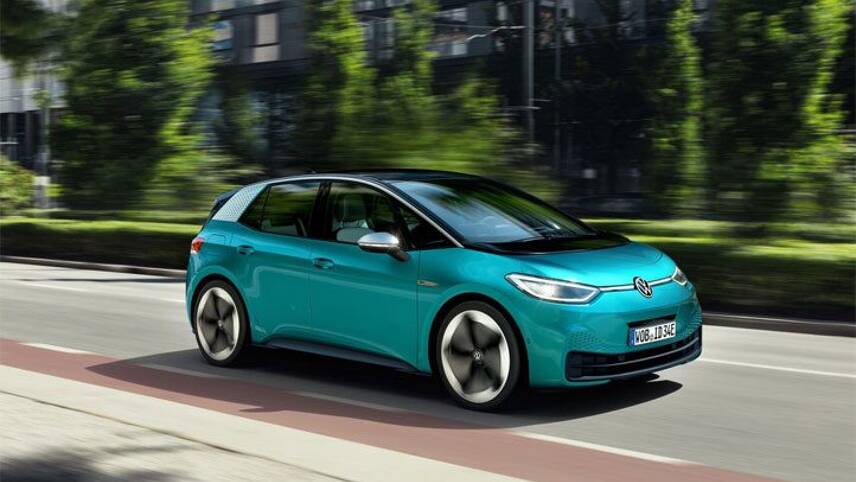Register for free and continue reading
Join our growing army of changemakers and get unlimited access to our premium content

Pictured: VW's ID.3
The company’s chief executive for passenger cars Ralf Brandstatter delivered a speech today (17 March) in which he outlined how a focus on electric and digital solutions will be prioritised as the economic recovery from Covid-19 continues across major sales markets.
During the speech, he revealed a new commitment to sell more than 450,000 EVs this calendar year. 15,500 pure EVs and 16,300 hybrids were sold by VW during January and February, he confirmed, explaining that sales are expected to grow once new models are launched. VW is planning to launch the ID.4 in several European markets in March and has already taken 23,500 pre-orders across the continent. The latter half of the year will see the ID.4 GTX, ID.5 and ID.6 X/CROZZ launching in China.
“Even in the exceptionally challenging times of the pandemic, we were able to make substantial investments in the future,” Brandstatter summarised. “As a result, we retained the freedom we needed to continue driving our transformation vigorously in spite of all the challenges we faced. This will enable us to continue to step on the gas in 2021 with our new ACCELERATE strategy.”
The new targets come after the Covid-19 pandemic caused a slump in vehicle sales in all major markets, which hit the ICE market, in general, harder than the EV market. The UK, for example, saw new car sales fall to their lowest point in more than 30 years, yet pure electric sales grew from 1.5% of registrations to 6.5% year-on-year.
Brandstatter also announced new commitments around digital technologies and service-based models including EV charging and shared mobility. On the latter, VW will pilot a subscription model for the ID.3 in six German cities this summer. The business believes that EV sharing could generate hundreds of millions of euros of additional revenue in the coming years.
“In this way, we are again highlighting that the Volkswagen brand is the Group’s modular champion,” Brandstatter said. “Around 80% of the Group’s volume is already based on Volkswagen technology.”
Batteries and chargers
To support the delivery of more EVs for both individual and business customers, as well as for car-sharing services, VW has committed to building six new battery production facilities across Europe by 2030. Locations have not yet been disclosed but VW has stated that the facilities will have a combined capacity of 240 GWh per year. The facilities will also manufacture EV chargers – a product line in which VW is hoping to increase sales five-fold in Europe by 2025.
VW will also continue to source batteries from third parties. It has placed a $14bn of orders with Northvolt through to 2030, for example.
Northvolt is a British firm but has selected northern Sweden as the site for its first Gigafactory. In the UK, the race for the first Gigafactory is well underway, with plans under development in Northumberland, Wales and Coventry. The UK Government has committed to developing “a robust battery supply chain to realise our ambitions of making the EVs of the future here in the UK”. A £500m competitive fund has been launched as a first step.
Want to know more about which carmakers have made which commitments around EVs? edie recently published a feature rounding up all the key commitments from the world’s biggest automotive brands. You can read that article in full here.
Sarah George


Please login or Register to leave a comment.